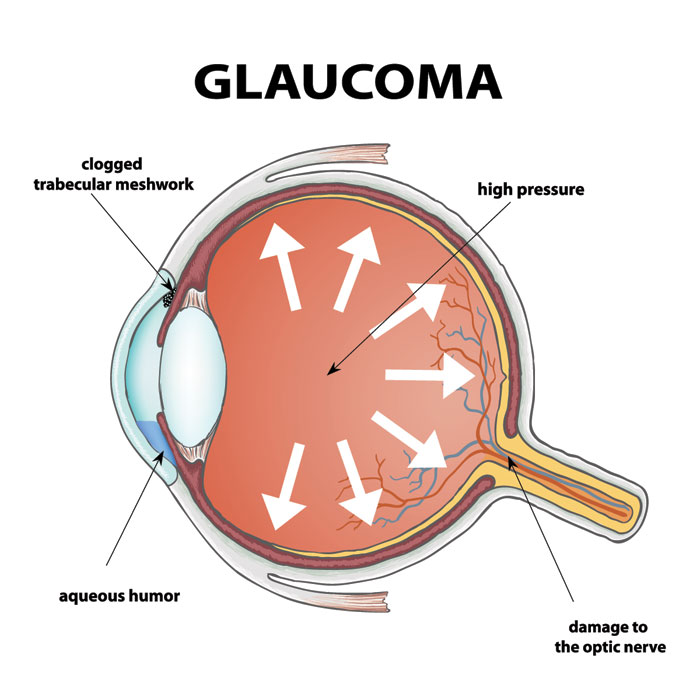Glaucoma and Disability: What You Need to Know
Glaucoma is one of the leading causes of irreversible vision loss worldwide. A common concern for patients is: Does glaucoma mean permanent disability?
The answer depends on the stage of your disease, your treatment plan, and how early the condition was diagnosed. This guide explains everything you need to know about glaucoma and disability status, including legal recognition, lifestyle impact, and financial assistance.
Can Glaucoma Cause Permanent Disability?
- Vision loss from glaucoma is permanent and cannot be reversed.
- Early detection and consistent treatment can slow or prevent severe impairment.
- The condition becomes disabling when vision loss interferes with daily tasks such as driving, reading, or working.
- In advanced stages, glaucoma may qualify as a legal disability depending on your country’s regulations.
Not every glaucoma patient is considered disabled, but untreated or advanced cases can lead to permanent disability that affects independence and quality of life.
Disability Recognition and Benefits
If you live with advanced glaucoma, you may qualify for disability benefits depending on where you live:
- United States: Social Security Disability benefits may be available if tests confirm significant vision loss.
- Philippines: A Persons with Disability (PWD) ID may be issued for severe vision impairment due to glaucoma.
- Other Countries: Requirements vary, but most require documentation of permanent vision loss.
The level of vision impairment—not just the diagnosis—determines eligibility for benefits.
Stages of Glaucoma and Disability Risk
- Early Stage
- Usually no noticeable symptoms.
- Regular eye exams detect it early.
- Disability status: Unlikely.
- Moderate Stage
- Peripheral vision starts to narrow.
- Tasks like driving may become difficult.
- Disability status: Possible.
- Advanced Stage
- Tunnel vision occurs; central vision may remain.
- Daily activities become challenging.
- Disability status: Likely.
- End Stage
- Near-total or complete blindness.
- Disability recognition almost certain.
Living With Glaucoma
Disability does not mean losing independence. With proper strategies, many patients live active lives. Here are practical tips:
- Use magnifiers or digital tools for reading.
- Install brighter lighting at home.
- Apply contrasting colors for key areas like stairs and doorways.
- Consider mobility aids for safe navigation.
- Explore low-vision rehabilitation programs for daily living support.
These steps can reduce the challenges of vision loss and maintain quality of life.
Treatment Options to Slow Progression
Glaucoma cannot be cured, but treatment slows its progression and preserves remaining vision:
- Eye Drops: Reduce intraocular pressure (IOP).
- Laser Therapy: Improves fluid drainage inside the eye.
- Surgery: Creates new drainage channels for better eye pressure control.
While these treatments do not restore lost vision, they are critical in preventing further damage.
Employment Challenges and Adaptation
Glaucoma’s impact on work depends on the nature of your job:
- Jobs requiring sharp eyesight, such as driving or operating heavy machinery, may become unsafe.
- Office-based work is often manageable with tools like screen readers and large-print monitors.
- Many countries require employers to provide reasonable accommodations for visually impaired employees.
If you cannot safely perform your duties, disability benefits or job modifications may be necessary.
Financial Assistance and Legal Rights
Those with severe vision loss may qualify for:
- Disability pensions or social security benefits.
- Tax deductions related to medical expenses.
- Healthcare discounts and government subsidies.
- Support for assistive devices and home adaptations.
Check your local regulations for eligibility requirements and application processes.
Common Questions About Glaucoma and Disability
Is glaucoma always a disability?
No. Early-stage glaucoma usually does not qualify as a disability.
Does glaucoma always lead to blindness?
No. With early detection and treatment, most patients maintain functional vision for life.
Can you get a PWD ID for glaucoma?
Yes, if vision loss meets your country’s legal criteria for severe impairment.
Can you work with glaucoma?
Yes. Many people continue working, especially in jobs that do not require perfect vision.
Personal Impact Stories
- A 45-year-old driver with advanced glaucoma stopped working due to safety concerns. He later received disability benefits and transitioned to an office-based role.
- A teacher diagnosed early managed her condition with daily eye drops and continues teaching without major limitations.
These stories highlight the importance of early detection and treatment in preserving independence.
What You Can Do Today
- Schedule regular eye exams, especially if you’re over 40.
- Follow your prescribed treatment plan consistently.
- Adopt assistive tools before vision loss worsens.
- Educate yourself about disability rights and benefits in your area.
Key Takeaways
- Glaucoma can lead to permanent disability, but early treatment makes a big difference.
- Legal recognition of disability depends on vision loss severity, not just diagnosis.
- Support systems and resources can help patients live independently.




